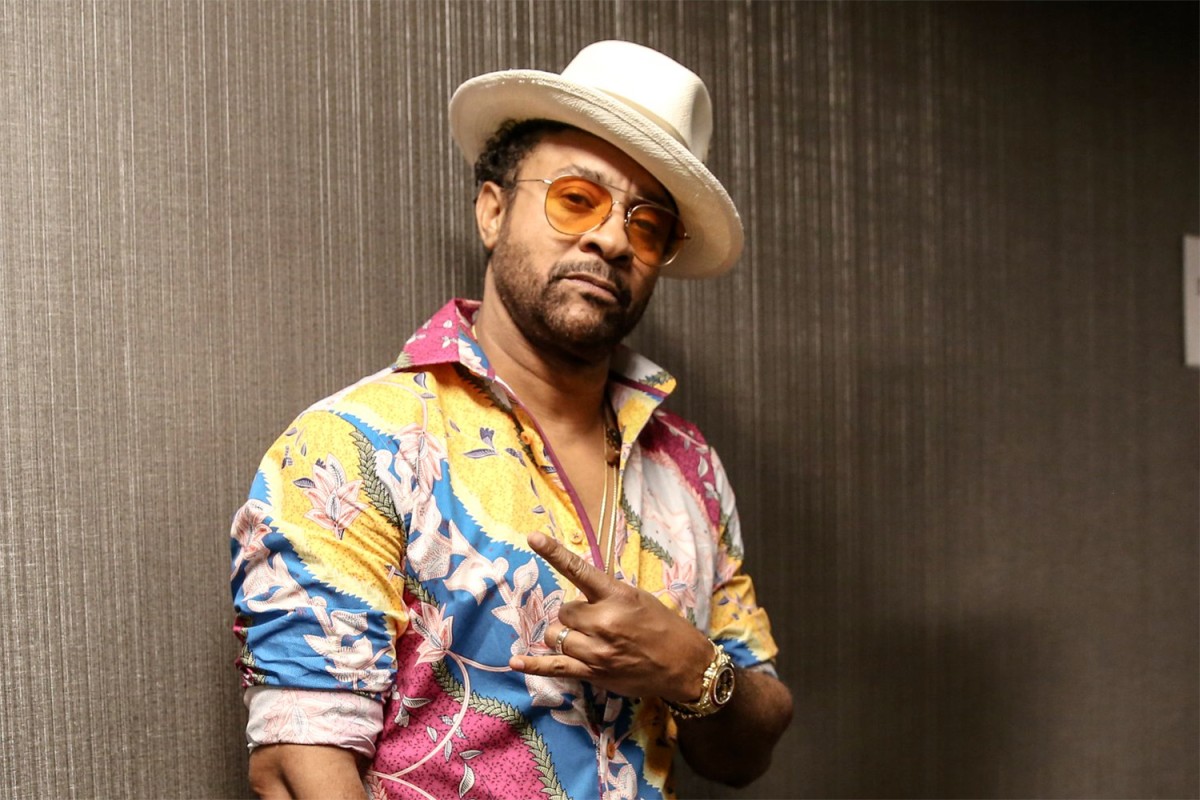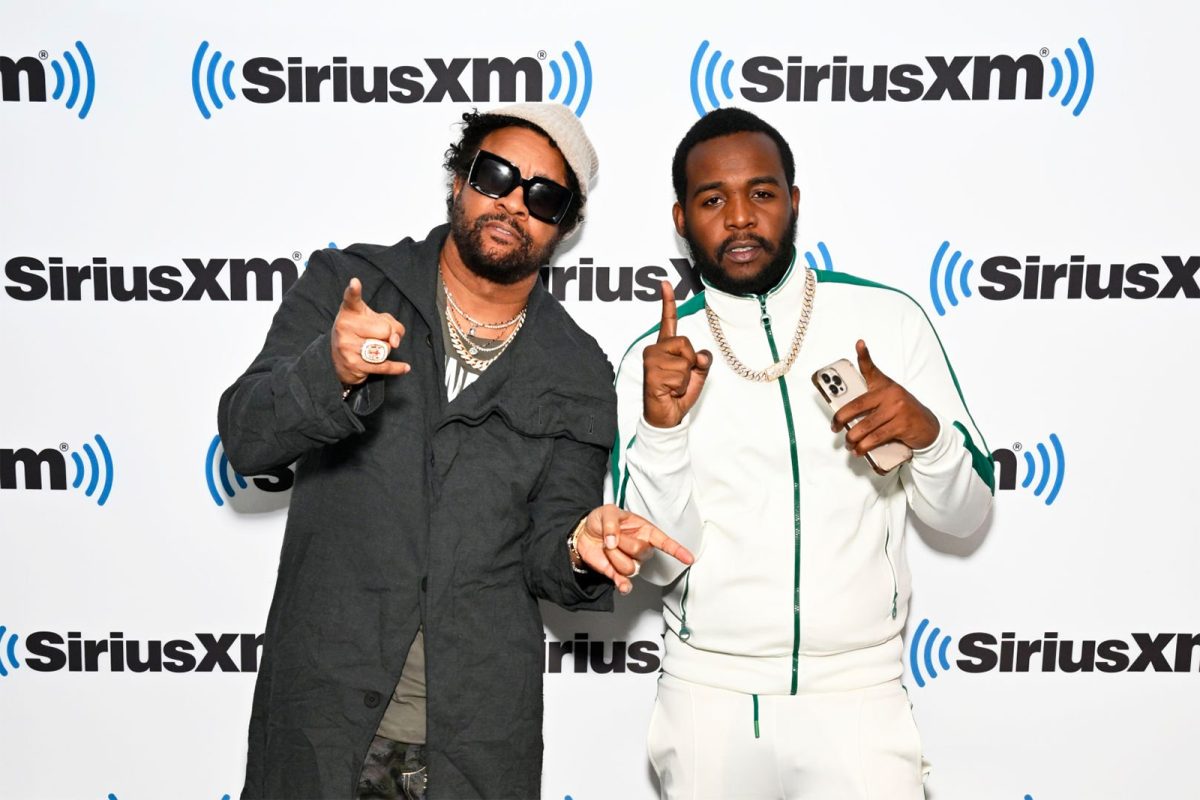Shaggy Recalls Being Dropped From Universal Music For Wanting To Release A Dancehall Track

Jamaican superstar Shaggy revealed that in the mid-2000s, Universal Music, his label at the time, balked at his desire to release a Dancehall track, Wild 2nite. According to the It Wasn’t Me singer, he was dropped after releasing the song anyway. But the gamble paid off after the song became another hit, solidifying his belief in his own artistic autonomy.
Speaking from experience, Shaggy shared his hard-earned wisdom with aspiring artists, urging them to embrace independence and trust their own vision during his keynote speech at the Island Music Conference (IMC) currently underway in Kingston, Jamaica.
“You should not be afraid to be an independent artist and bet on yourself,” he said.
“I’ve been without a major label since like 06, I think. The last major label I was on and signed to was Universal and I remember the minute I was dropped from that label and I was dropped because I insisted that I wanted to put a dancehall record out and we didn’t see eye to eye on that but I put it out anyway and that song was Wild 2nite and dem drop me right after that.”
Shaggy had released his successful Hot Shot (2000) and Lucky Day (2002) albums under MCA Records, which was absorbed by Universal Music’s Geffen Records after it became defunct in 2003.
He then released the Clothes Drop (2005) album under Geffen, which featured Wild 2nite with Olivia. The song peaked at No. 61 on the UK Singles Chart and was a top 40 hit in Finland, Germany, Italy and Switzerland.
Shaggy shared how being dropped fueled his next hit, Church Heathen. “The very next song I wrote after that was a song called Church Heathen and that spent 19 weeks at # 1,” he recalled.
“It’s almost like a challenge and I think it’s a Jamaican thing, if you tell a Jamaican don’t touch the light switch, dem ago touch it. The moment someone tells me that I can’t do something, I am like ok watch me.”
Church Heathen appeared on the Intoxication (2007) album, released under VP Records.
During the keynote, Shaggy also recounted his battle with a label over Mr. Bombastic, a song they initially rejected in favor of him repeating the Oh Carolina formula.
“Greensleeves Records at the time told me to do another Oh Carolina and I said no and we had a big argument with the management at the time because I refused to repeat myself and the song I turned in at the time was Mr. Bombastic and they asked me what is this? And I argued and screamed, and I slammed the door and walked away,” he shared.
He continued, “and there was a guy at Virgin called Kent Berry who called down a couple weeks afterwards and say hey that Boombastic record he has they are going to put it in the Levi’s ad and the levi ad took off and that very record that they asked me what the hell is this became the very first reggae or dancehall song to debut at # 1 on the British charts.”
Now, Shaggy is urging aspiring musicians to believe in themselves and build their brand independently.
“You don’t have to sit and wait fi some big name fi deh pon you tune, create something that is credible,” he advised.
“Nowadays you don’t have to sit down and wait on the powers that be, the powers that be is now the artist. You can put out what you want on your device and upload it yourselves and spend for your own marketing behind it. Back then I had to wait for budget and try fi get approval and all a dat and be creative, it makes no sense you create the same sound as your eras, you can’t do it amongst them.”
Injustices on the road
Shaggy also addressed the issue of injustice faced by Jamaican artists, particularly in international markets.
“My gripe about it is things I see when it comes to reggae artists. Reggae artists because there are such few outlets for them, a lot of them are scared to speak out against the injustices being thrown at them because they do not want to lose that opportunity,” Shaggy said during his keynote.
He recounted his own struggle with promoters who questioned his Jamaican identity, citing his response: the 2013 album Out of Many, One Music, a collaborative effort featuring established and upcoming reggae artists.
“I remember at one point I was having trouble getting reggae festivals and mi did a wonder wha a gwaan why me naw get no reggae festivals so mi agent tell me say that a lot of the promoters were saying I’m not Jamaican and I am not Jamaican enough and these are white promoters who were born in Europe who have never been to Jamaica not even one time having an opinion about how Jamaican I am when me baawn yahso and raise yahso,” he said.
“So what I did to combat that was doing a reggae album called Out of Many and mi mek sure mi incorporate all reggae artist, every body who dem usually put pon dem show mi mek sure fi put dem pon the album and mi do it with Sly and Robbie and mi and dem go tour it and mi mek sure gi dem the show dem cheap cheap cheap, drop all mi price and when I got on dem stage they had the biggest crowd that night and people were even hanging out of trees singing all my pop songs,” he said.
Working With New Artists
He reasoned that one proven way established artists could help push upcoming artists is to copy his track record of collaborating with new artists, even those who are unknown.
“What we should do is stand as some people who can help these artists and provide a platform for those artists. Mi do It Wasn’t Me with an unknown artist named RikRok, uunno never hear bout him before. I did Angel with a then unknown artiste name Rayvon, I also did Summertime with him. I did I need your love with my brother Costi right there. I just did a song with an unknown artist by the name of Conkarah, unno know him? Conkarah had a song named Banana that had 2 billion streams during the pandemic and then I did Wine and Go Down Deh with Spice and Sean,” he shared.
He said he prefers to work with upcoming artists rather than with established acts. “I prefer to work with upcoming artists rather than with superstars because with superstars come superstar egos. I don’t wanna say alright we ago do a television show and dem a say well ok I need six first class seats and one for my puppy and one for my puppy’s assistant. It may sound strange but it’s true and rather annoying,” he revealed.
“I’m sure many of you were confused when I was doing an album with Sting. ‘He’s dealing with some rocker from the Police, what do they have in common?’ But the inspiration was so much. He got in the room and was inspired by me, and I was inspired by him. So sometimes you make a record based on the inspiration of what that person is bringing to you and inspire you to create greatness. We won a grammy with that album and we had the second largest tour that year We toured for a year and a half, it’s probably the most lucrative tour I’ve been on,” he revealed.
“You guys (new artists) have to be confident in self to step out of the box. I couldn’t make music like Dennis Brown and sound like Dennis Brown or sound like Beres Hammond or Peter Tosh or sound like Bob Marley because those guys are masters of their craft, who am I to think I can make a better record than Dennis Brown in the same style that he did,” Shaggy posited.
“You artists need to step outta the box and put your foot down and say yow this is my creation and believe that you are going to win, that’s what I did,” Shaggy asserted.

